Buried deep underground in small English town of Margate, Kent; is a grotto shrouded in complete mystery. Adorned with 4.6 million shells and 70ft of winding underground passages leading to a rectangular chamber, this shell grotto is undoubtedly a remarkable site to behold.
Story has it that in 1835, a laborer was going about his usual field work, but when he struck the soil with his spade, it sank into the earth. The farmer realized that he was standing on something hollow, but was unable to see anything from the surface. Word spread around town, and a local school teacher volunteered his young son, Joshua, to be lowered into the hole with a candle. Upon emerging from the mysterious cavern, Joshua described rooms filled with hundreds of thousands of carefully arranged shells.
|
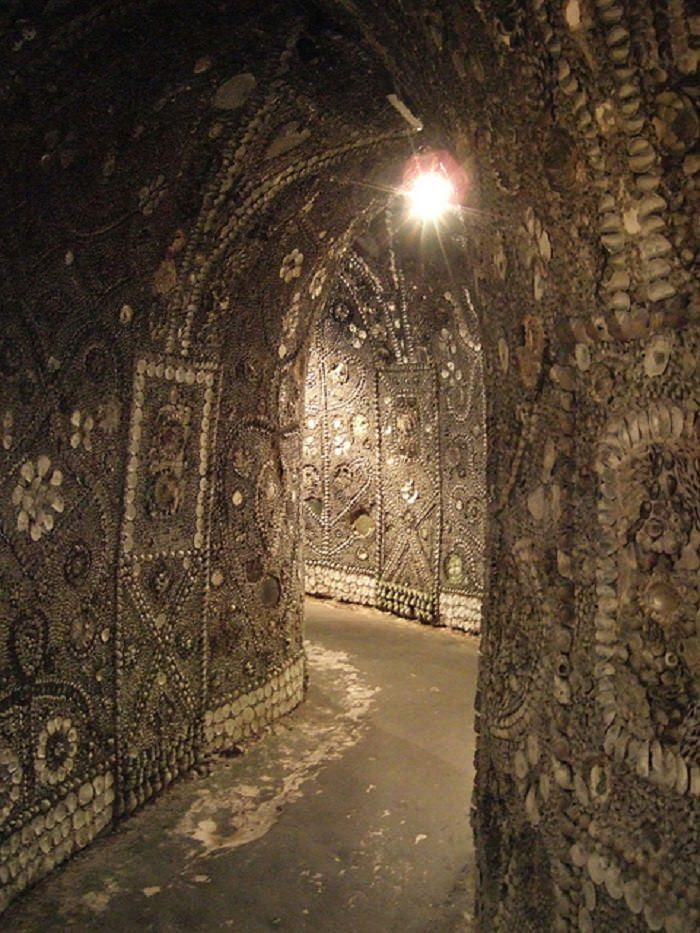 |
The Shell Grotto is adorned with symbols mosaiced in millions of shells, symbols that celebrate life as well as reminders of death.
 |
| The Shell Grotto hosts a passage, a rotunda and an altar chamber. |
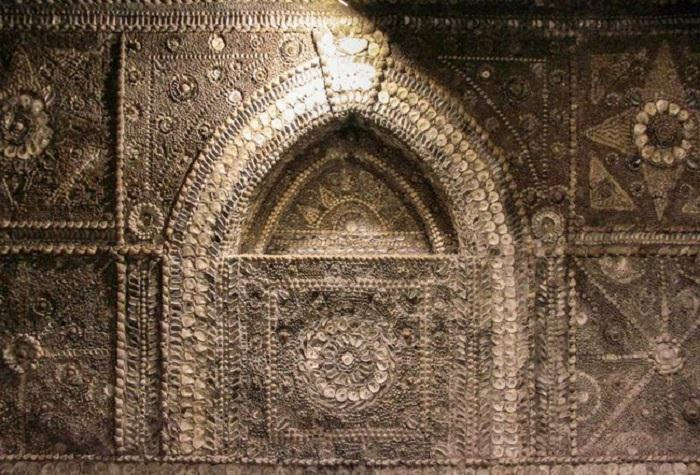 |
| The shells in the grotto, include scallops, whelks, mussels, cockles, limpets and oysters, all of which can be found locally. However, the flat wrinkle shells must have been brought in from elsewhere. |
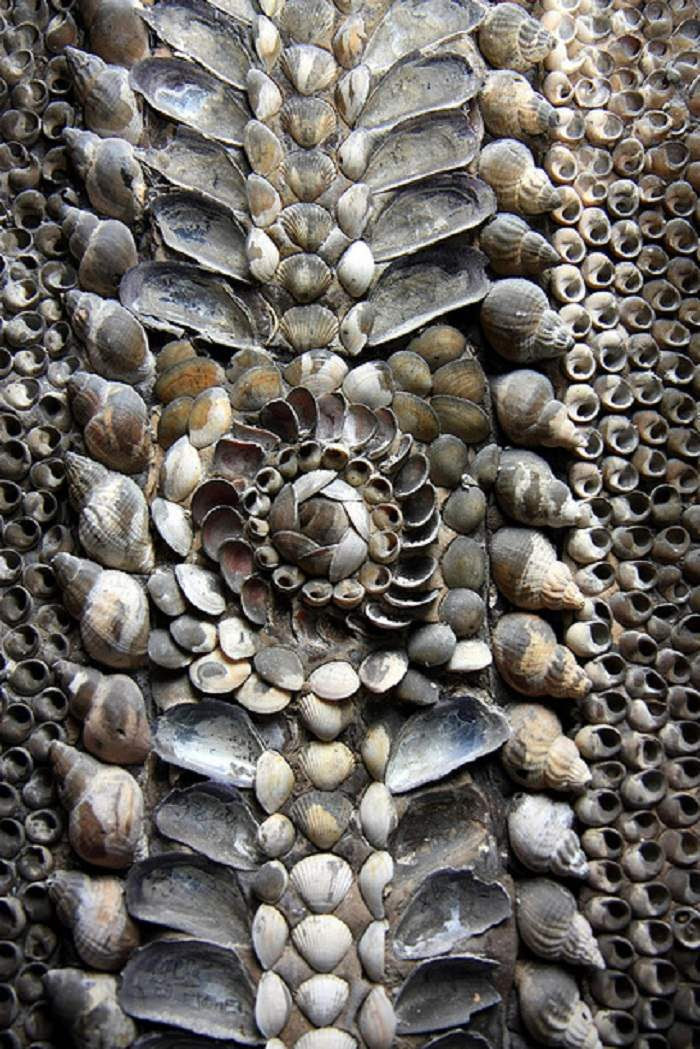 |
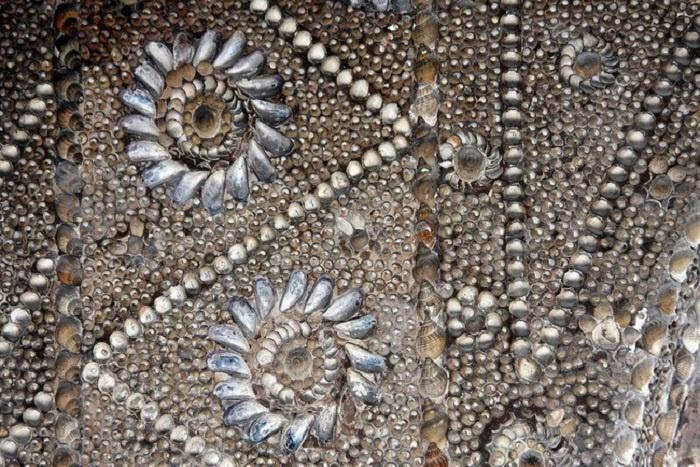 |
| With so much intricate detail, on a rather large scale, one question still remains, who built this underground cavern? |
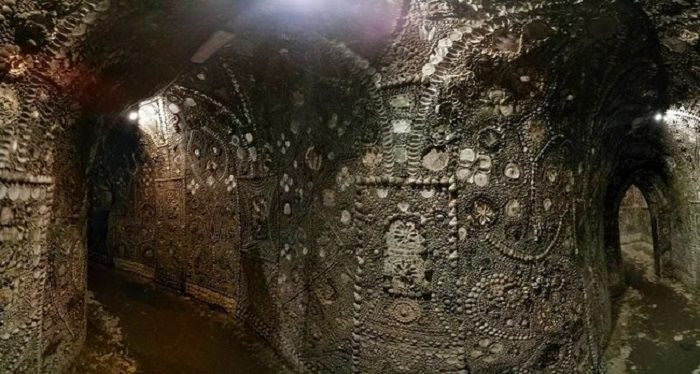 |
| Shrouded in mystery, some believe that the grotto once had religious significance - primarily due to the vaulted ceilings and altar spaces. |
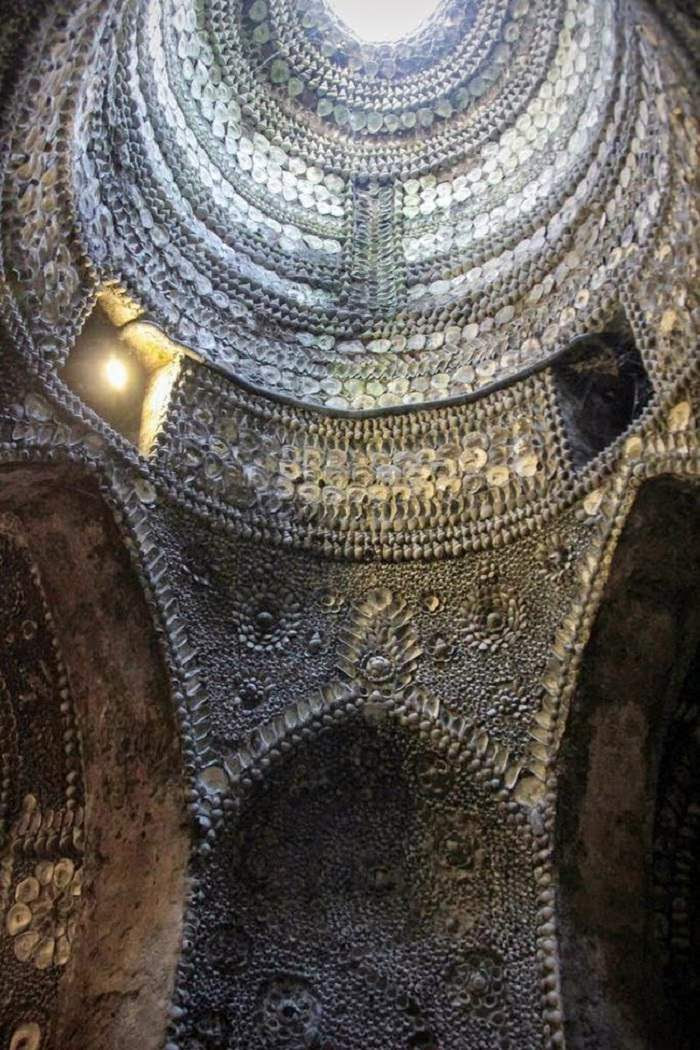 |
Nobody knows how old the grotto is, but some theories about its origin date its constructions as far back as 3,000 years ago.
Another theory holds that the grotto was created as an aristocrat's folly sometime in the 1700s. This proposed explanation is validated by the fact that shell grottoes were actually quite popular in Europe in the 1700s, especially among the wealthy. The only catch to this theory, though, is that the grotto's location was on farmland - a land that had never been part of a large estate where follies would have been satisfied.
Others believe that it may have been used as an astrological calendar in the past.
There are those also, who say that the grotto must somehow be connected with the Freemasons or the Knights Templar.
|
| Others believe that the grotto may date as far back as 12,000 years ago, maintaining that it is connected to a mysterious Mexicanculture. |
 |
Its mystery has left people completely stumped, so much so that in the 1930s, some had held séances, in the hopes of contacting the spirits of whoever built the grotto.
Right now, it seems, we will not discover the truth behind this mysterious shell grotto. The age of the shells could be determined through carbon dating according to the Shell Grotto's web site, but it's a pricey process and other conservation issues are currently being prioritized.
|
| One thing is clear though, the arrangement of the shells must have taken countless hours of painstaking work. |
 |
| Unfortunately, many of the shells in the grotto have faded over time, losing their luster through water damage. In its early days, it would have been full of dazzling color. This recreation shows what they might have looked like at the time, and with over 4.6 millionshells, it surely must have looked astonishing! |
 |
| Since its discovery, the Margate Shell Grotto has been opened to the public, first by Joshua's father, the school teacher. In 1835 he quickly bought up the land and began renovating the grotto to make it suitable for visitors. Two years later, in 1837, the grotto had been opened to the public for the first time, and still enjoys visitors today. |
Wednesday, 10 February 2016
Who built the Margate shell grotto - and why?
Subscribe to:
Post Comments (Atom)

No comments:
Post a Comment